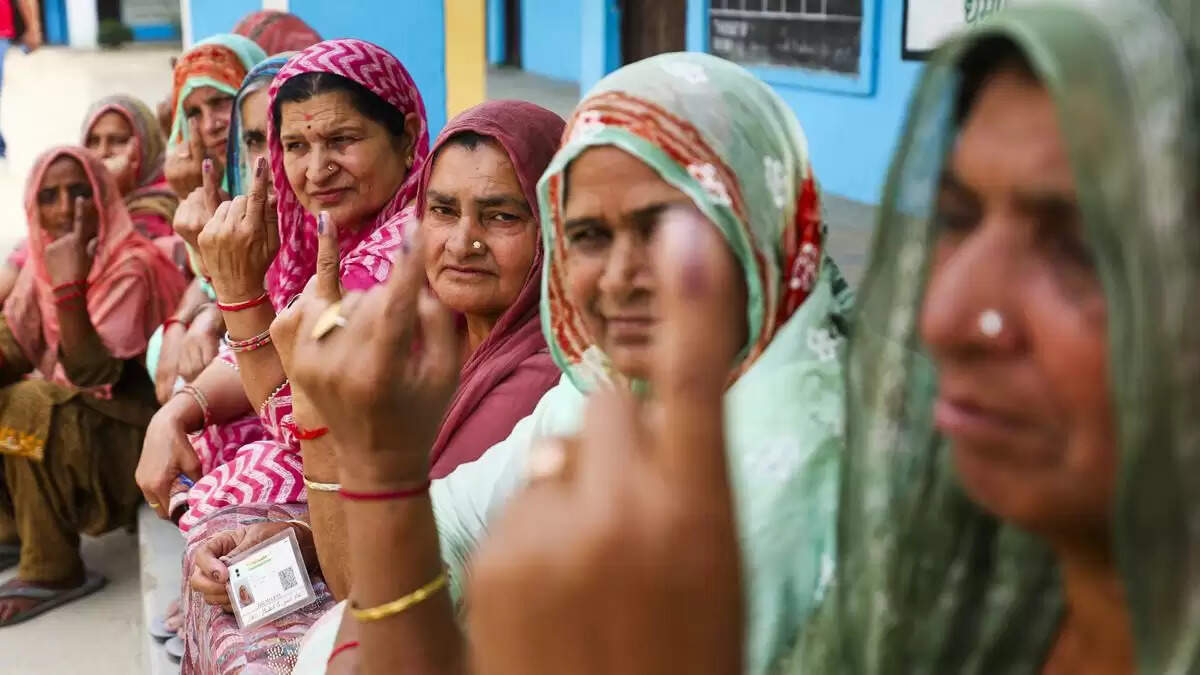Historic Day for Pakistani Hindu Refugees in Jammu and Kashmir: First-Time Voters Cast Ballots

1 October, 2024 — During the current Assembly elections, Pakistani Hindu refugees, notably Valmikis and Gorkhas, exercised their right to vote for the first time, marking a historic turning point for democracy in Jammu and Kashmir. With the repeal of Article 370 in August 2019, several communities have been awarded domicile status, signalling the end of decades of uncertainty and isolation.
Voters are clearly excited and emotional about their long-awaited chance to take part in the political process. As they waited in queue outside polling places, many of them—many of whom have resided in Jammu and Kashmir for generations—expressed feelings of empowerment and hope. For a some, this was an opportunity to finally be heard in a system that had long ignored them, not just to cast a ballot.
On Election Day, men and women gathered in lines outside polling places, eager to leave their stamp on history, as dawn broke. One of them, Rajesh Kumar, a refugee from Valmiki, was sobbing while waiting in queue. For us, it's a dream come true. We have been invisible for years, but we are now a part of this wonderful democratic process," he stated, expressing gratitude to Prime Minister Narendra Modi for helping to bring about this transformation. "We are finally being recognised as citizens of this land."
Over the years, the subject of awarding domicile status to these communities has been difficult, especially since Article 370 was repealed, which had previously provided Jammu and Kashmir unique status. The goal of the action was to include refugees into the political structure of the area and grant them access to rights and benefits that they had been denied for many years.
This election has emotional significance that goes beyond simple political engagement; it represents a significant change in the identity and agency of the communities of Valmiki and Gorkha. A sense of belonging that had escaped them in the past was voiced by many voters. Gorkha voter Anita Devi stated, "We lived in the shadows for years, but now we can finally stand tall and be counted." "We owe this to the government and to our perseverance."
Political analysts are keeping a careful eye on this election because they know that the participation of these populations could have a big impact on Jammu and Kashmir's electoral environment. There has always been a complicated political dynamic in the area as different populations compete for acceptance and representation. A new dimension to this dynamic is added by the merging of the Valmikis and Gorkhas.
News of tearful scenes at polling places circulated on social media as the day went on. A large number of voters shared their experiences and the importance of the election on social media sites like Facebook and Twitter. "I voted for the first time today. With a picture of himself with his ballot, one user said, "I feel like I am finally part of India."
This initiative has been hailed by the administration as a significant step towards advancing inclusivity and democratic involvement in the area. It has been a top focus, according to local leaders, to make voting easier for these areas. An official from the administration of Jammu and Kashmir stated, "We are committed to ensuring that every citizen, regardless of their background, has the opportunity to participate in our democracy."

Even though the day was one of joy and hope, it served as a reminder of the difficulties these communities still face. The problems of political representation, social integration, and economic stability continue to plague many. But casting a ballot is an essential first step in resolving these issues.
The electoral journey for the Valmiki and Gorkha communities had just begun, as the sun set on this momentous day. It is hoped that now that their views are being heard in politics, they will have more opportunities, rights, and acknowledgement in the future.
In addition to marking a new chapter for these communities, this election demonstrates the tenacity and resolve of individuals who have endured a protracted wait to be heard. Today serves as a ray of hope for a more inclusive future in a region characterised by a convoluted past and a multiplicity of identities.
--
